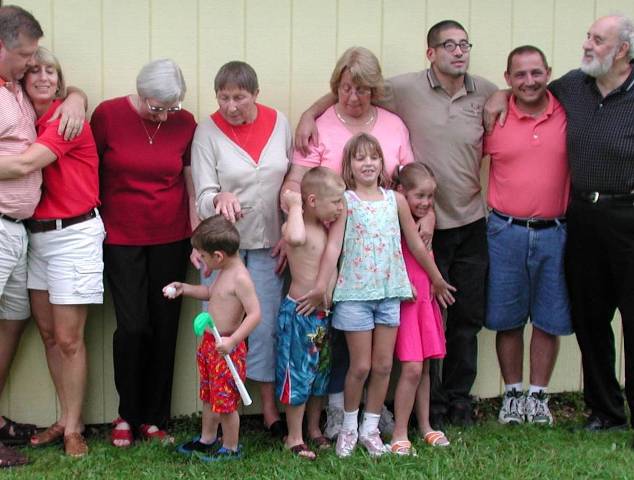 |
| HOME | GLOBAL | DISTRICTS | CLUBS | MISSING HISTORIES | PAUL HARRIS | PEACE |
| PRESIDENTS | CONVENTIONS | POST YOUR HISTORY | WOMEN | FOUNDATION | COMMENTS | PHILOSOPHY |
| SEARCH | SUBSCRIPTIONS | JOIN RGHF | EXPLORE RGHF | RGHF QUIZ | RGHF MISSION | |
|
|
|
Joseph L. Kagle, Jr. Peace Essays
|
|
A Cry to Loved Ones
To find peace, we must find those who will journey with us, plus find the love with which to embrace our relationship. To find how we love, just sing out two short words, “Don’t go!” With those words, all the world knows how you feel.
The American Indians had a unique idea. When someone left to go someplace, no time passed while he was gone. Two simple words expose our need for companionship
Waking in the dark room, in the warmth of the covers, feeling the vacancy beside me, the words come clear and sure:
"Don't go."
There are the genre sounds of movement in the house — the getting-ready-for-work sounds. My wife has to go to McLane Student Life Center by 6 a.m. and cure the ills of the student world. For me now, sleep is not an option.
Like rolling something bittersweet around in the cavity of your mouth; the words turn in my mind. "Don't go."
"Don't" is abrupt with the "t" at the end. "Go" is positively terminal. The "g" is guttural, something a caveman might utter. The "o" is a period of a lament.
"Don't go." It's not like "Don't leave," which strings the idea out too smoothly.
"Don't go" are the words a child might say to a mother. It is what my cat says by brushing against my leg or sitting on my papers.
It is "Here we are. Why must we be parted?" It is what I saw recently on the face of a friend whose wife is dying of cancer. It is a lover's statement in the night.
Wistful desires
Most of the time, "Don't go" is impossible to control. Knowing that it is impossible just makes it that much more appealing. The reply is a foregone conclusion, "I must go. Friday I am off work. We could make a time to meet then. Can you get off? Someday we will both retire and have the time to stay."
As it is said, we know that no one retires and spends every moment together.
It is a "how-do-I-know-that-I-miss-you-if-you-never-go-away?" idea.
We all know that it is naive to think that saying something will make it true. "Will you stay in bed with me all day, allowing me to serve you breakfast, lunch and dinner? Will you really not go, even to do the daily chores which have become 'must do' items? For just this short time, can work wait?"
All these thoughts come rushing in upon the still body in the warm bed.
"Don't go" is a call in the night to all those you love. It is the seemingly foolish outcry to all from whom, when they were around, you found time to get away.
Maybe just to say and think it is enough.
It is a way to voice, "I love you." It is a way to verbalize some inner need of continuity which we wish to say all the time but forget because there is so much to do and so little time to do it all.
The American Indians had a unique idea. When someone left to go someplace, no time passed while he was gone. When he came in the door of the hut again, it was a continuation of the time when he was with us. For their culture, "don't go" may not have been needed. The individual self was in all the things around — the sky, the night, the bear, the eagle, the wide plain, a grandchild, the wind or a gentle rain.
"Don't go" is our call on the wind. We know that it is not possible except on honeymoons or while courting as a castaway on a boat at sea or on some desert oasis, and especially not in the early morning when my wife is getting ready for work.
It is a call to all those who we wish could be eternally here. Just maybe it is the first cry of a baby for his mother or father. The sadness comes in its futility. The wonder comes in its possibility. So for you all. "Don't go."
|
| RGHF peace historian Joseph L. Kagle, Jr., 15 August 2006 |
